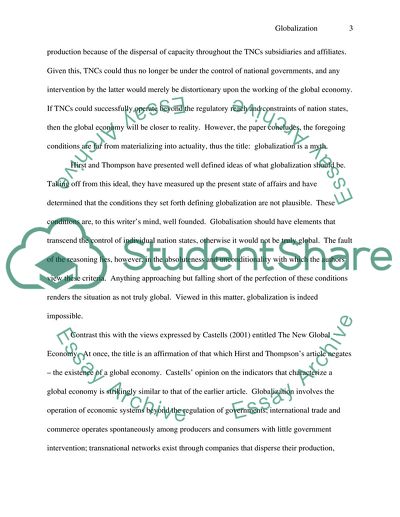Cite this document
(The Meaning of Globalization Assignment Example | Topics and Well Written Essays - 1500 words, n.d.)
The Meaning of Globalization Assignment Example | Topics and Well Written Essays - 1500 words. Retrieved from https://studentshare.org/politics/1726989-critical-review-of-selected-texts-on-globalisation
The Meaning of Globalization Assignment Example | Topics and Well Written Essays - 1500 words. Retrieved from https://studentshare.org/politics/1726989-critical-review-of-selected-texts-on-globalisation
(The Meaning of Globalization Assignment Example | Topics and Well Written Essays - 1500 Words)
The Meaning of Globalization Assignment Example | Topics and Well Written Essays - 1500 Words. https://studentshare.org/politics/1726989-critical-review-of-selected-texts-on-globalisation.
The Meaning of Globalization Assignment Example | Topics and Well Written Essays - 1500 Words. https://studentshare.org/politics/1726989-critical-review-of-selected-texts-on-globalisation.
“The Meaning of Globalization Assignment Example | Topics and Well Written Essays - 1500 Words”, n.d. https://studentshare.org/politics/1726989-critical-review-of-selected-texts-on-globalisation.


